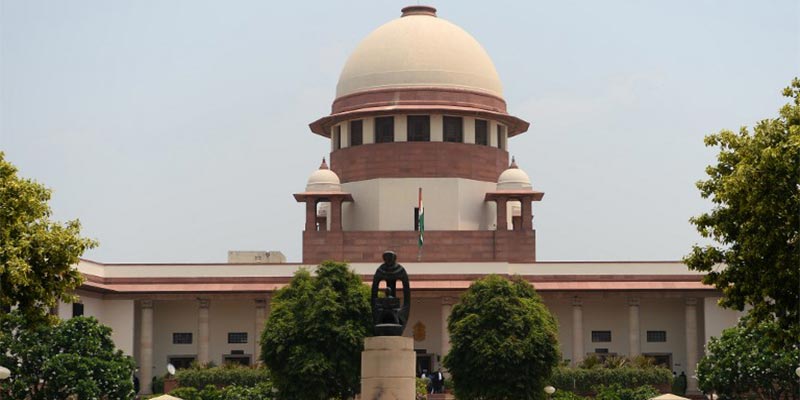- India
- Aug 02
Explainer - E.V. Chinnaiah vs State of Andhra Pradesh case
• The Supreme Court held that states are constitutionally empowered to make sub-classifications within the Scheduled Castes (SC), which form a socially heterogeneous class, for granting reservation for the uplift of castes that are socially and educationally more backward among them.
• A seven-judge constitution bench headed by Chief Justice D.Y. Chandrachud, by a majority of 6:1, set aside the Supreme Court’s five-judge bench verdict of 2004 in the E.V. Chinnaiah vs State of Andhra Pradesh case which had held that no sub-classification of Scheduled Castes can be allowed as they are a homogeneous class in themselves.
• A dispute over sub-classification arose after certain states, including Punjab, made laws to sub-classify Scheduled Castes to grant more quota benefits to certain castes.
• On August 27, 2020, in State of Punjab vs Davinder Singh, a constitution bench held that the judgment in Chinnaiah case requires to be revisited by a larger bench of seven judges because it failed to consider significant aspects bearing on the issue.
E.V. Chinnaiah vs State of Andhra Pradesh case
• A three judge bench of the Supreme Court was called upon to adjudicate on the validity of the Andhra Pradesh Scheduled Castes (Rationalisation of Reservations) Act, 2000.
• The Act was enacted following the recommendations of the Ramachandran Raju Commission constituted by the state government. The Commission was tasked with ascertaining the groups among the Scheduled Castes in the state who had failed to avail of the benefits of reservations in college admissions and state public services.
• The Commission found inter-se backwardness among the Scheduled Castes in the state in matters of reservation in education and appointment. Accepting its findings that there were inequalities among the Scheduled Castes as far as the distribution of the benefits of reservation was concerned, the state government promulgated the Andhra Pradesh Scheduled Castes (Rationalisation of Reservations) Ordinance, 1999.
• While proceedings challenging the Ordinance were pending, the state enacted a law to replace Ordinance.
• Section 3, which provided for ‘Rationalisation of Reservations’, apportioned the benefits of reservation among Scheduled Castes into four groups — Groups A, B, C and D — in varying percentages: 1 per cent for Group A, 7 per cent for Group B, 6 per cent for Group C and 1 per cent for Group D respectively, subject to the availability of eligible candidates.
• The Andhra Pradesh High Court rejected challenges to the Act, leading to appeals which came to be decided by the Supreme Court in Chinnaiah vs State of Andhra Pradesh case.
• The appellants argued that the state legislature lacked legislative competence to enact the law. They argued that once enumerated in the Presidential List under Article 341 of the Constitution, the Scheduled Castes constitute a homogenous class, which is incapable of further sub-division/sub-classification. Such a classification, they argued, amounted to tinkering with the Presidential List, in violation of Article 341(2) and Article 14 of the Constitution.
• The state argued that it could, in exercise of powers under Articles 15(4) and 16(4) decide the scope and extent of reservations. This power, they argued, was not limited by Article 341 which operates in an entirely different field. The state urged that the Act of 2000 was a form of affirmative action and it did not exclude or include anyone from the Presidential List under Article 341.
• Such a sub-classification of the Scheduled Castes was claimed to be permissible under Article 16(4) for the same reason that the Supreme Court had held in 1992 Indra Sawhney vs Union of India case that the backward classes could be divided into the ‘more backward’ and ‘backward’, depending on inter-se backwardness.
• In 2004, a constitution bench of the Supreme Court unanimously held that the Andhra Pradesh Act was unconstitutional.
• The SC bench held that the purpose of reservations is to afford special protection to the members of the Scheduled Castes and Scheduled Tribes as a homogenous class of persons. Further classification of this class of people would amount to tinkering with the Presidential List. This regrouping of a homogenous group would, also amount to reverse discrimination and be violative of Article 14.
• The 2004 verdict had stated that only Parliament, and not state legislatures, can exclude castes deemed to be Scheduled Caste from the Presidential List under Article 341 of the Constitution.
Manorama Yearbook app is now available on Google Play Store and iOS App Store

